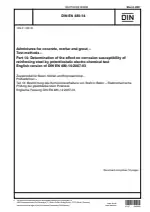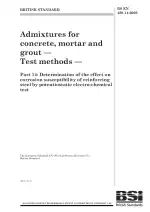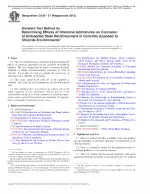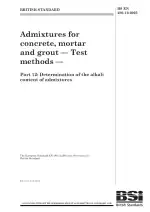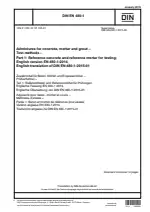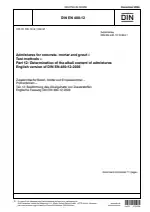Admixtures for Concrete, Mortar and Grout - Test Methods - Part 14: Determination of the Effect on Corrosion Susceptibility of Reinforcing Steel by Potentiostatic Electro-Chemical Test
Also Known As:
The DIN EN 480-14 standard is a test method used to determine the effect of admixtures on the corrosion susceptibility of reinforcing steel in concrete, mortar, and grout. This test is conducted using an electrochemical cell, where a steel bar embedded in a mortar sample is held at an increased potential.
The purpose of this standard is to evaluate the harmlessness of admixtures with regards to the corrosion of reinforcing steel, specifically in non-stressed conditions. It applies to all types of admixtures used in concrete, mortar, and grout that come into contact with reinforcing steel.
By conducting the potentiostatic electro-chemical test described in this standard, companies can assess the impact of different admixtures on the corrosion resistance of reinforcing steel. This allows for the selection and use of admixtures that do not pose a risk to the integrity and durability of concrete, mortar, and grout structures.
| Descriptors | Additives, Concrete admixtures, Concrete aggregates, Concrete mixes, Concretes, Construction, Construction materials, Corrosion, Determination, Electrochemical corrosion, Electrochemical methods, Grouting mortar, Measurement, Mixed processes, Mixing, Mortars, Reinforced concrete, Reinforcing steels, Rods, Specification (approval), Steel bars, Steels, Susceptibility, Test pieces, Testing |
| ICS Codes | 91.100.30 - Concrete and concrete products |
| Language(s) | English |
| File Size | 245.8 KB |

